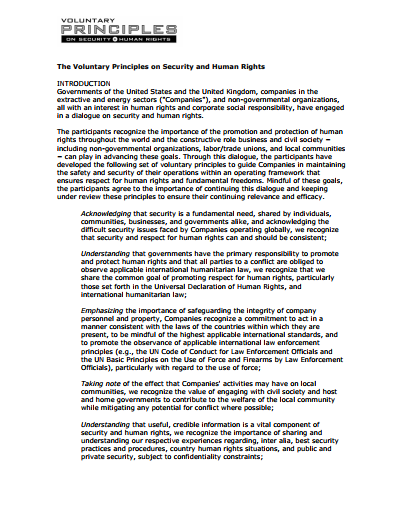The Voluntary Principles on Security and Human Rights (VPs) were developed in 2000 by governments, companies in the extractive and energy sectors (companies), and non-governmental organizations (NGOs). The Voluntary Principles are nonbinding and offer guidance to companies in maintaining the safety and security of their operations while ensuring respect for human rights and humanitarian law. The VPs cover three key elements, for which this IGT provides corresponding direction and guidance:
• Risk assessment – Companies should assess security risks and the potential for human rights abuses
• Public security providers – Companies should interact with public security providers (i.e. police, military), in a way that promotes the protection of human rights
• Private security providers – Companies should similarly interact with private security providers (i.e. contracted security) in a way that respects human rights
The VPs are designed to help extractive companies maintain the safety and security of their operations within an operating framework that ensures respect for human rights and fundamental freedoms and, when applicable, for international humanitarian law. Since then, other companies, governments, and NGOs have joined the initiative, and many other companies have publicly signaled that they apply the VPs at their operational sites.

